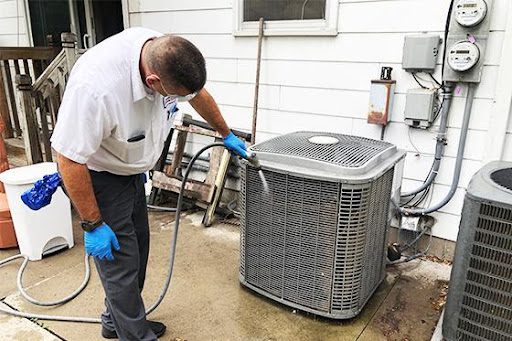What should I do if my air conditioner suddenly stops working?
Don’t sweat it! We’re here to help.
Air conditioners can stop working for a number of reasons. The experts at Bonfe have compiled a few basic things you can check on your own. If those don’t work, Bonfe’s Rest Assured Response™ promises to get you cool in 24 hours.
Check #1: Is the power connected?
If your air conditioner suddenly stops working, it might be as simple as a tripped circuit breaker or a blown fuse.
Before you get hot under the collar, check your circuit.
Check #2: Is it the thermostat?
You’d be surprised how often the air conditioner works just fine but the thermostat is on the fritz, even if the air conditioner itself is in tiptop condition.
First step? Check the settings. Make sure your thermostat is set to “cool” and that the temperature setting is below the current temperature in the house.
Try setting the desired temperature 5 degrees lower than the temperature that is currently displayed on the thermostat, then see if your air conditioning system turns on. If you have a smart thermostat, it may display a diagnostic code and a description about the issue so that you can decide how to proceed.

Check #3: Is the air filter in good shape?
Air filters are an essential component of air conditioner performance. They should be checked regularly (ideally monthly) and changed as often as needed – no longer than 2-3 months, depending on usage. Have pets in the home? Wood floors that kick up dust? You might need to change your filter more frequently!
A dirty air filter impacts the performance of your air conditioner (and adds to your energy bill). A filter that’s completely blocked can trigger your air conditioner to stop working altogether.
Check #4: Is the air conditioning unit clogged?
The part of your air conditioning system that is outside your home is called the condenser. Leaves, grass, and other debris can build up in and around the condenser, causing it to perform poorly or stop working altogether. Take a look at your condenser and see if you can detect an obvious culprit.
If there is significant build up of debris, you can carefully remove the leaves, grass, etc. Make sure the unit is not actually running first. You don’t want to reach into a spinning air conditioner! You can also try using a shop vac, hand-held vacuum or hose attachment on a standard household vacuum cleaner to remove as much debris as possible. Make sure to get the top and bottom of the unit.
Never make direct contact with the small metal “fins” of the condenser or swipe the vacuum cleaner back and forth across the fins as it can warp them.

Check #5: Is the condenser filthy?
Gently spraying your A/C with a bit of water can help keep it clean and even enhance performance since it prompts cooling via evaporation. However, if the buildup is beyond a gentle spray, you may want to call in a professional for a proper cleaning. Even with the best intentions, you could end up doing more damage than good if you damage the unit. Don’t use high-powered hoses or nozzles when spraying your condenser.
If none of these solutions help or you’re not comfortable with any of the steps…
Don’t be afraid to call in a professional– we’ve seen it all. Whether we show up and simply plug something in or your system needs replacing, the trained professionals at Bonfe will offer you options and be honest, straight forward and prompt.
Stay cool out there, folks!

